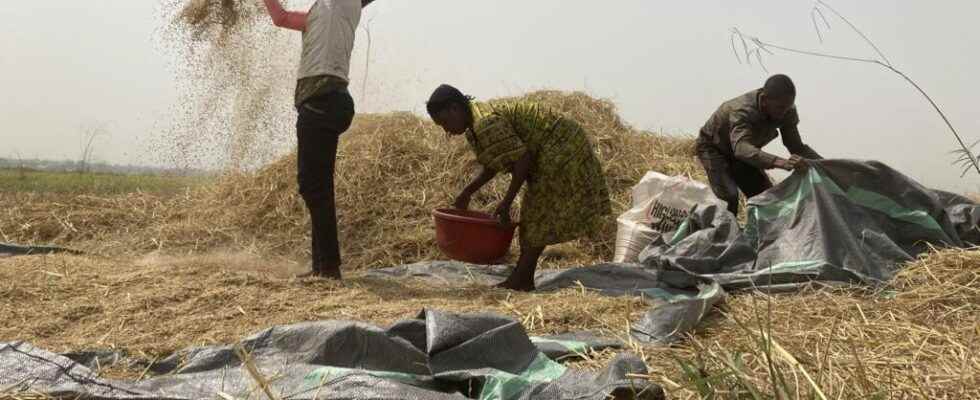Professionals take stock of agricultural production. It is down in Europe and worrying in Africa where cereal imports have also fallen sharply.
In one year, the consumption of chemical fertilizers fell by 25% on the African continent. The countries of the African Union would like to develop production, but first of all you have to be able to import, explains Nicolas Broutin, the president of the French branch of Yara, the world leader in fertilizers, also present in Ghana or Côte d’Ivoire. .
” Clearly today, Africa is potentially in a dramatic situation. First of all, there is the question of transporting cereals, because the question of blocking cereals has played a major role against a continent like Africa, and then [celle] to be able to send fertilizers at prices that are locally acceptable. »
Overpriced fertilizers, rising energy prices, adverse weather conditions… In some countries, the 2023 harvests promise to be even more difficult.
” We see producers wondering whether it is worth sowing if they cannot cover their production costs. We see it for example in Morocco at the moment. According to the sources I have heard, the rains are not there enough, the seed is not necessarily available and the fertilizers have increased “, illustrates Philippe Heusèle, president of the international relations committee of the French cereal sector. Last year, Morocco only collected 85,000 tons of soft wheat and was forced to import several million tons of cereals.
For some time now, the watchword has been food sovereignty and the development of an agriculture capable of supplying its domestic market. The objective of food sovereignty is one of the challenges set for Senegal’s new Minister of Agriculture, Aly Ngouille Ndiaye. He was in Paris for the Salon.
We have implemented this food strategy with a projected budget of approximately 5000 billion [de francs CFA] over the next five years to be virtually self-sufficient in most consumer products. We eat a lot of rice, a lot of corn. We have made significant leaps. We went from 1.5 million tonnes of cereals in 2010 to 3.5 million tonnes. But we need to produce more.
Senegalese agriculture facing the challenge of self-sufficiency. Interview with Aly Ngouille Ndiaye
